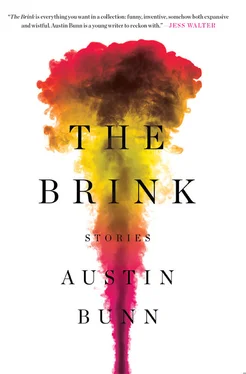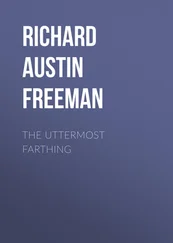The concierge studied them both, as though this were a test of his congeniality. Then he handed her an island newspaper, a crudely printed broadsheet with all the weight of a shopping circular. “Beach Bombings Kill 23.” Haley read the headline and saw in her mind the French girls thrown into the air, an explosion of brides.
Mac and Haley retreated to two rattan chairs to devour the paper. The previous evening, explosions had destroyed a restaurant on Jimbaran Beach, the tourist zone three miles up the sand. She tried to visualize the street. They’d taken the shuttle from the airport, through narrow streets of low-slung shacks and surf shops, with mopeds darting through every opening in the traffic. The route depressed her. Countless black wires crosscrossed above the road; did the whole island run off stolen cable? She saw the water in snatches between the buildings and eventually closed her eyes until they passed through the gates of the resort.
“Did you hear anything?” Haley asked.
“I thought I heard sirens,” Mac said, but he often claimed special, unverifiable knowledge. Apparently, the bombs were crude, pipes stuffed with shrapnel and ball bearings, stashed in backpacks. None of the suspects had been found. The article said the majority of the victims had been islanders, and Haley allowed herself a small, guilty relief. The brides had been spared. On the second page was a photograph of a white man in a ruin of splintered benches and tables. Beside him, she could just make out a leg in the sand. A brown leg, without a person.
“Who does something like this?” Haley asked. Mac shrugged. She wanted someone to explain the facts to her. She was smart, she could hold it in her head, but this newspaper was toilet paper.
Bali had not been Haley’s idea. She’d been thinking four-poster beds and long echoing halls of stone. Impressively, Mac had kept the honeymoon location a secret until the airport. Standing at the destination gate, Haley felt ambushed. In an instant, she knew exactly who had given Mac the idea. It was as though Saul had followed her here, into her privacy.
Saul was Mac’s best friend from college, a curly-haired Virginian with a barking laugh and prominent chipped tooth that had somehow, despite his pedigree, eluded dentistry. Saul had spent a year island-hopping in Indonesia, lugging two surfboards in a giant duffel. Five months ago, he’d returned to the States and crashed on their couch in Rogers Park to see if “Chicago was next.” He was one of those people who appeared to live exclusively outdoors, on a mysterious trickle of cash. At different points, Saul had taught snowboarding, led wilderness adventures for deaf teenagers, built rustic log cabins for millionaires in Montana.
“Will he make me feel pathetic for not having some amazing life?” Haley had asked on the way to the airport to pick him up. She visited housing projects and patches of dirt she called “gardens” on all the forms. Her job for the foundation depressed her, would have depressed anybody, seeing that much rebar and broken concrete and kittens in tires. Often, when she pulled up to the curb, she’d have a moment of pure terror, when the idea of opening the car door and “leaving the bubble,” as she called it, felt like a burden too great to shoulder.
“He can’t make you feel anything, sweetheart,” Mac said. “But I do tend to feel fat and pale around him.”
Saul arrived in sandals and grimy cargo shorts and sick with stomach flu. He slept for two days. She found sand, fine as flour, on the bathroom tile. They left him the apartment during the day, and odd books, pilfered from their shelves, appeared on the counters. Haley and Mac came home to elaborate meals Saul had made using every possible kitchen implement. Cans of coconut milk mounted in the sink. More than one fresh pineapple lay quartered on the cutting board for them in the mornings. It was clear Mac loved Saul, or loved how Saul made him remember himself, but Haley found Saul’s restlessness unsettling. She felt like he was going through every drawer while they were at work, looking for something they did not have.
Once, after a dinner Saul had made for them, Mac asked him about his walkabout in the South Pacific. Mac was good at making other people’s stories interesting. Few people ever asked him about his work at the ad agency. If they did, he’d say, “It’s all just a matter of deciding where to put the puppy.” Mac hadn’t traveled much, and as Saul spoke, Haley finally understood why Saul liked him — it was the same reason she did. He was precisely where you left him.
“So wait, where was that amazing beach again?” Mac asked from the bathroom, the door open while he peed. Saul brought out the insouciant boy in him. Soon, the cigarettes would be released from their cryogenic hold in the freezer.
“I’m telling you,” Saul called back. “You two will not want to come home.” He leveled his hand over the candle flame. “I almost didn’t.”
“But you did,” Haley said. “You did come back.”
Saul sighed and looked out the window. He’d tied his hair back in a ponytail. His features were big and American, a face that belonged on a coin. “You’re right. And I’m still trying to figure out this whole slam.” She understood Saul had lost the plot. Snow made drifts on the windowsills. Saul would not be staying in Chicago for long.
From the bedroom, Mac called out, “Hal, what happened to the goddamn atlas?” Because they still had an atlas. In fact, the whole Rand McNally set, spines unbroken, on the bookshelves next to the bed, Mac’s contribution to the nostalgia fetish of their times.
She went to fill Saul’s wine glass, but he put his hand over the rim and stared at her. “Is everything okay?”
She realized she had been avoiding eye contact with him, afraid of what he might draw out of her. It wasn’t that Saul was beautiful. It was that he was utterly alone and had made a strength of it somehow, and that threatened her. She’d run from the solitude of her twenties, the stir-fries she ate alone, the solo trips to museums, the nights she called college roommates to check in. Mac had ended the anxiety, but it came with a sense that she’d avoided some essential encounter with herself.
“I’m fine. Why?” she said.
“Good,” he said. “I wasn’t sure. I want you to like me, Haley.”
Of course she liked him. He was Saul’s best friend. “It’s just that sometimes I feel bad for not having adventures,” she said. “Like you.”
Saul just watched her. “I’m sleeping on your couch without a job,” he said. “Welcome to the adventure.”
The following morning, Mac off to work, Haley sat next to Saul on the couch to explain the television remotes. Saul, logy from sleep and wrapped in a sheet, took her hand and pulled her into a kiss. He was going to ruin her.
On the deck of their bungalow, Haley chewed her fingernails, nibbling away at the wedding lacquer. It was afternoon now and a busted upholstery of gray clouds rolled toward them at the horizon. The glassy lagoon stretched before her and water gently lapped the bamboo pilings underneath. From here, from the furthermost bungalow, Haley couldn’t see another soul. Mac had gone to an Internet café—of course, they’d left all their devices at home except for Mac’s phone, which had no bars, no network connection — to let their family know they were alive after the bombing, to look into the possibility of flights home, and she felt bereft. They’d paid for the remoteness, and now Haley desperately wanted others around.
She wondered if it was possible to keep these disasters from becoming the story of their time here. A friend had been married on a cruise ship in New York Harbor in the summer of 2001. Every single one of her wedding photos had the Twin Towers in the background. They were divorced now, and the only thing people saw was the wreckage to come. That must not happen to her.
Читать дальше











